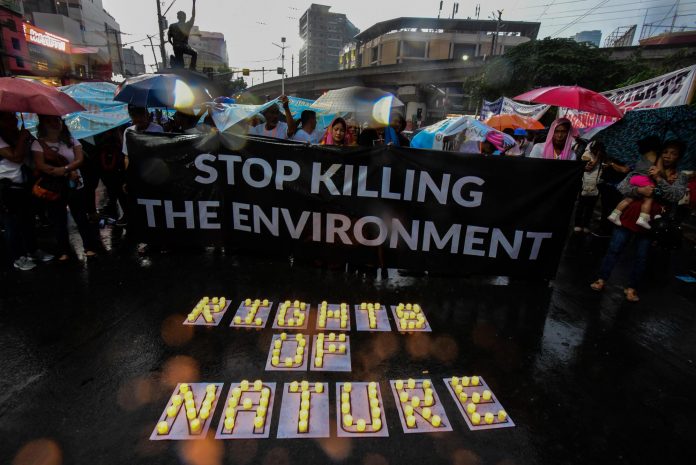Catholic church leaders called on Filipinos to take actions against “ecologically-destructive” human activities to combat the impacts of the coronavirus pandemic and the looming economic crisis.
The faithful were urged to “revisit” the message of the Philippine bishops’ pastoral letter in 2019 that called for “concrete ecological actions.”
Father Edwin Gariguez, outgoing executive secretary of Caritas Philippines, said the pastoral letter has become “more relevant now that world faces a pandemic.”
The priest reminded the public that the origin of the coronavirus disease “has something to do with the disrupted biodiversity due to human activities.”
“We must come together and stand against all activities that harm the environment, disturb the balance of nature, and put the life of the next generations at risk,” the priest said.
Father Gariguez stressed the need for a strong public display of “ecological solidarity with solid and daring actions” to put an end to the destruction of all creations.
The pastoral letter titled “An Urgent Call for Ecological Conversion, Hope in the Face of Climate Emergency” instructed dioceses to make caring for the environment “a special concern.”
It stressed the “Care for Our Common Home” is not only a Christian duty and responsibility but a “moral imperative.”
Father Gariguez, however, said that one year after the release of the letter, “the entire Church still needs real actions from the ground.”
He said something is lacking with regard to “more coordinated and impactful concrete ecological actions” from the dioceses and local parishes.
“There were some efforts but hampered by the lockdown due to the pandemic. Now, we need to be more creative in advancing environmental campaigns,” said the priest.
Rodne Galicha, executive director of Living Laudato Si Philippines, said the pandemic has affected the lives of the people “in ways we did not think possible.”
He said the looming economic crisis, massive unemployment, and strain on resources due to the pandemic “is only a glimpse into a future where nature continues to be abused.”
One year after the Catholic bishops raised the issues on climate emergency in the pastoral letter, Galicha said the country “has already made some progress.”
“Institutions of both the private and public sectors are releasing statements and policies withdrawing from environmentally-destructive activities,” he said.
The pandemic has exposed the need to take more steps “with even more urgency if we hope to avoid a point of no return for the environmental crisis,” said Galicha.
Bishop Ruperto Santos of Balanga urged the faithful to “take and live” the message of the pastoral letter “seriously and very responsibly.”
“With what is happening to us because of COVID-19… we have to protect and preserve the only home that God has gifted to us,” he said.
Bishop Broderick Pabillo, apostolic administrator of the Archdiocese of Manila, said the call to protect the environment remains a “continuing emergency.”
The prelate expressed optimism that the present health crisis has already “shown us that it is possible to live a simpler lifestyle.”
Bishop Roberto Mallari of San Jose said the pandemic is a time to reflect and “honestly ask ourselves what is our contribution to take care of our common home.”
The prelate said while the country tries to flatten the curve of the pandemic, “may the lessons of the crisis be curved deeply in our hearts.”









